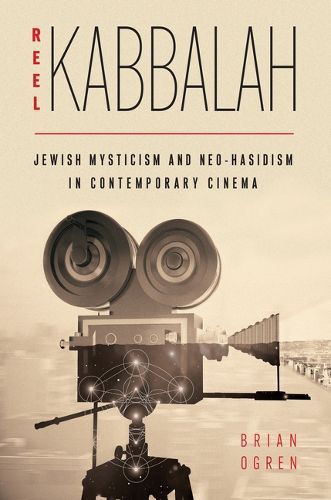Readings Newsletter
Become a Readings Member to make your shopping experience even easier.
Sign in or sign up for free!
You’re not far away from qualifying for FREE standard shipping within Australia
You’ve qualified for FREE standard shipping within Australia
The cart is loading…






Reel Kabbalah: Jewish Mysticism and Neo-Hasidism in Contemporary Cinema? studies the ways in which fictional film in the first decade of the twenty-first century represents the esoteric Jewish speculative traditions known as Kabbalah and Hasidism. It examines the textual and conceptual traditions behind five important cinematic representations -- Pi (1998), Ushpizin (2004), Bee Season (2005), The Secrets (2007), and A Serious Man (2009) -- and it considers how film both stands in continuity with those traditions and modifies them in the New Age vein of what is known as neo-Kabbalah and neo-Hasidism. Brian Ogren transforms our understanding of reception history by focusing on how cinema has altered perceptions of Jewish mysticism. In showing how the Jewish speculative traditions of Kabbalah and Hasidism have been able to affect mass-consumed cinematic portrayals of ultimate Truth, this book sheds light on the New Age, pop-cultural dialectic of the particular within the universal and of the universal within the particular.
$9.00 standard shipping within Australia
FREE standard shipping within Australia for orders over $100.00
Express & International shipping calculated at checkout
Reel Kabbalah: Jewish Mysticism and Neo-Hasidism in Contemporary Cinema? studies the ways in which fictional film in the first decade of the twenty-first century represents the esoteric Jewish speculative traditions known as Kabbalah and Hasidism. It examines the textual and conceptual traditions behind five important cinematic representations -- Pi (1998), Ushpizin (2004), Bee Season (2005), The Secrets (2007), and A Serious Man (2009) -- and it considers how film both stands in continuity with those traditions and modifies them in the New Age vein of what is known as neo-Kabbalah and neo-Hasidism. Brian Ogren transforms our understanding of reception history by focusing on how cinema has altered perceptions of Jewish mysticism. In showing how the Jewish speculative traditions of Kabbalah and Hasidism have been able to affect mass-consumed cinematic portrayals of ultimate Truth, this book sheds light on the New Age, pop-cultural dialectic of the particular within the universal and of the universal within the particular.